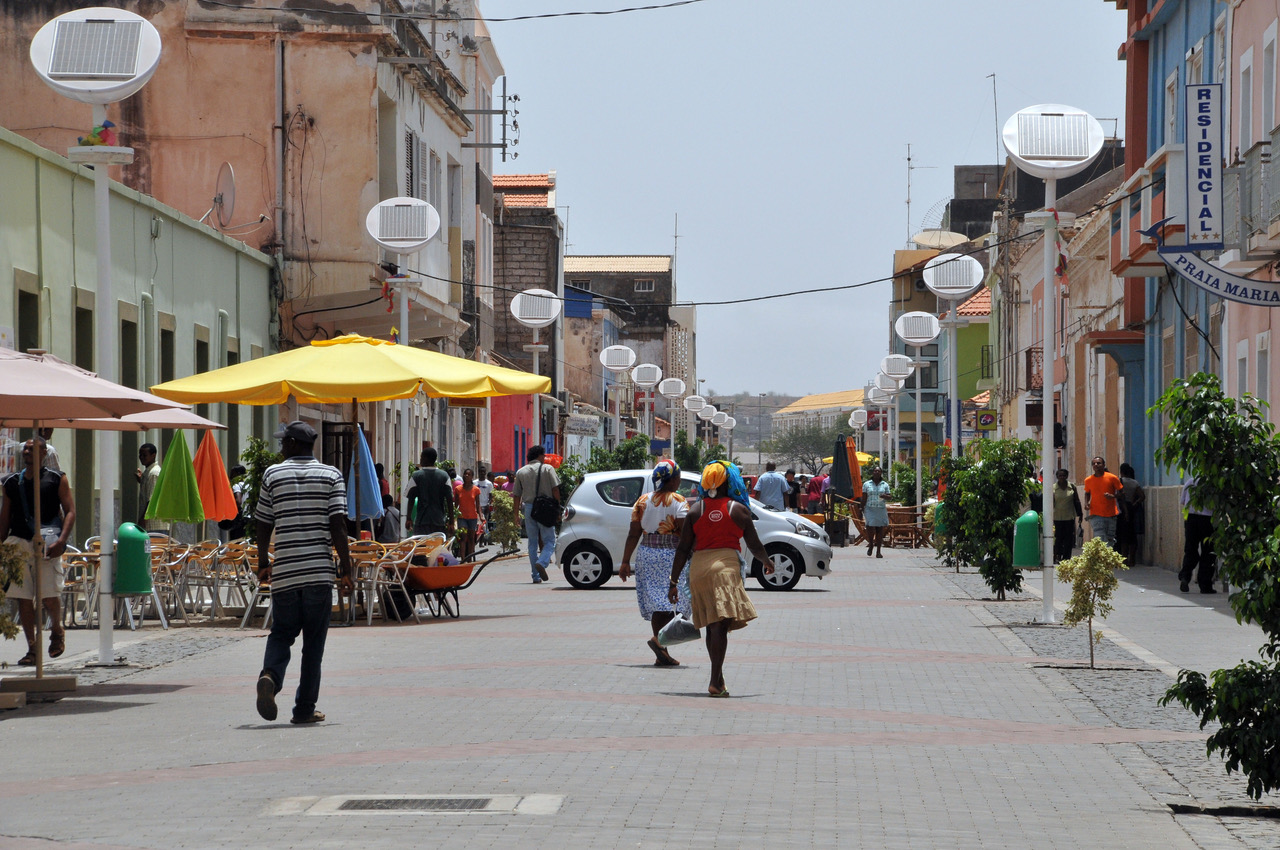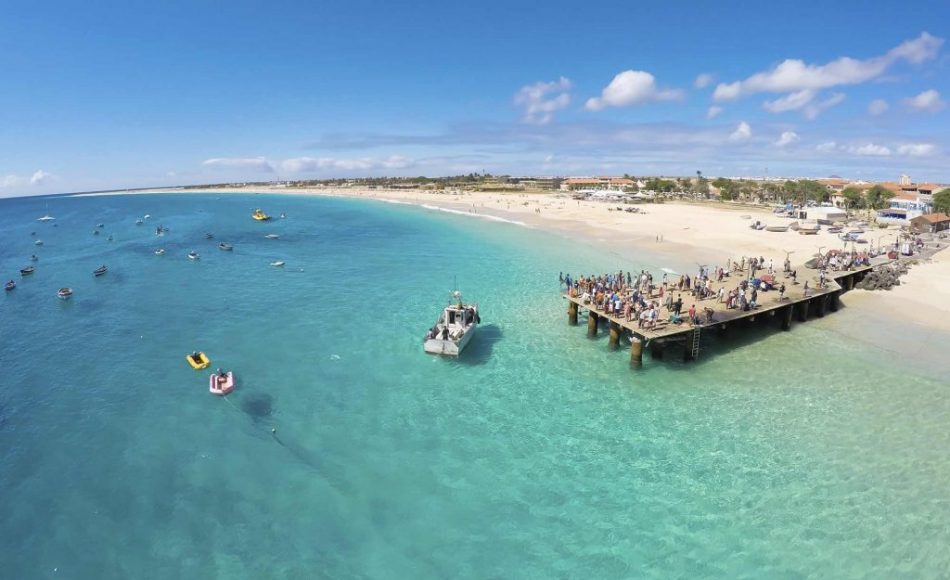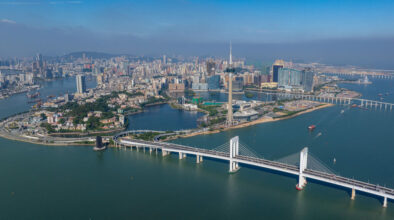PHOTOS Eneias Rodrigues And Macao Trade And Investment Promotion Institute
Macao’s business trip to Cabo Verde brought new perspective investments from China to an African country using Macao as a platform to develop the economic and commercial relations for all three parties involved
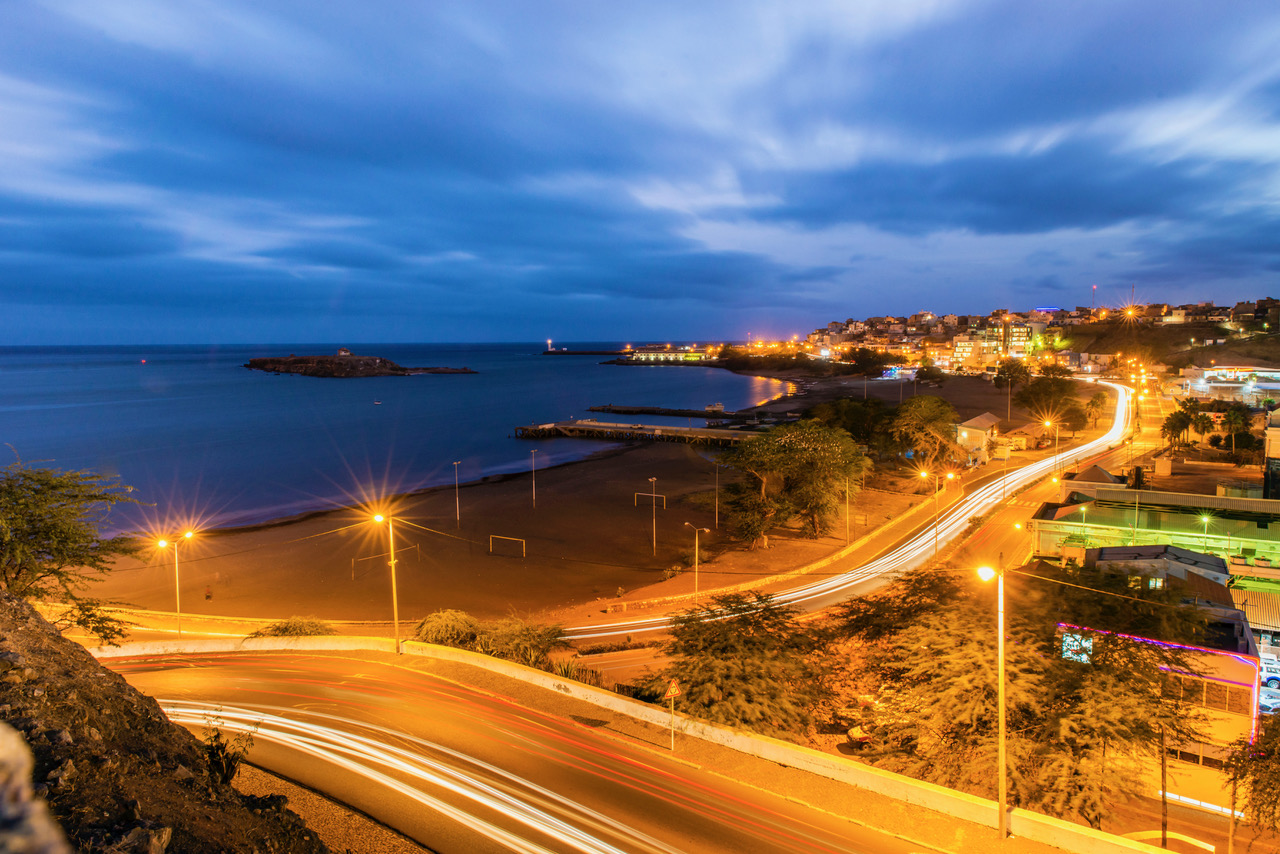
Outside Confecções Alves Monteiro, the lunchtime heat of a sunny Sunday in Praia was the perfect setting for relaxing at the sound of nostalgic morabeza music. But inside, the head of Cabo Verde TradeInvest, Ana Barber Lima, was eager to get down to business with a delegation of more than 60 businessmen and officials from Macao and nearby provinces in China. Next to her stood João Pedro Alves Monteiro, the founder of Confecções, Cabo Verde’s biggest textile unit, which supplies uniforms for police, firemen, hotels, and schools.
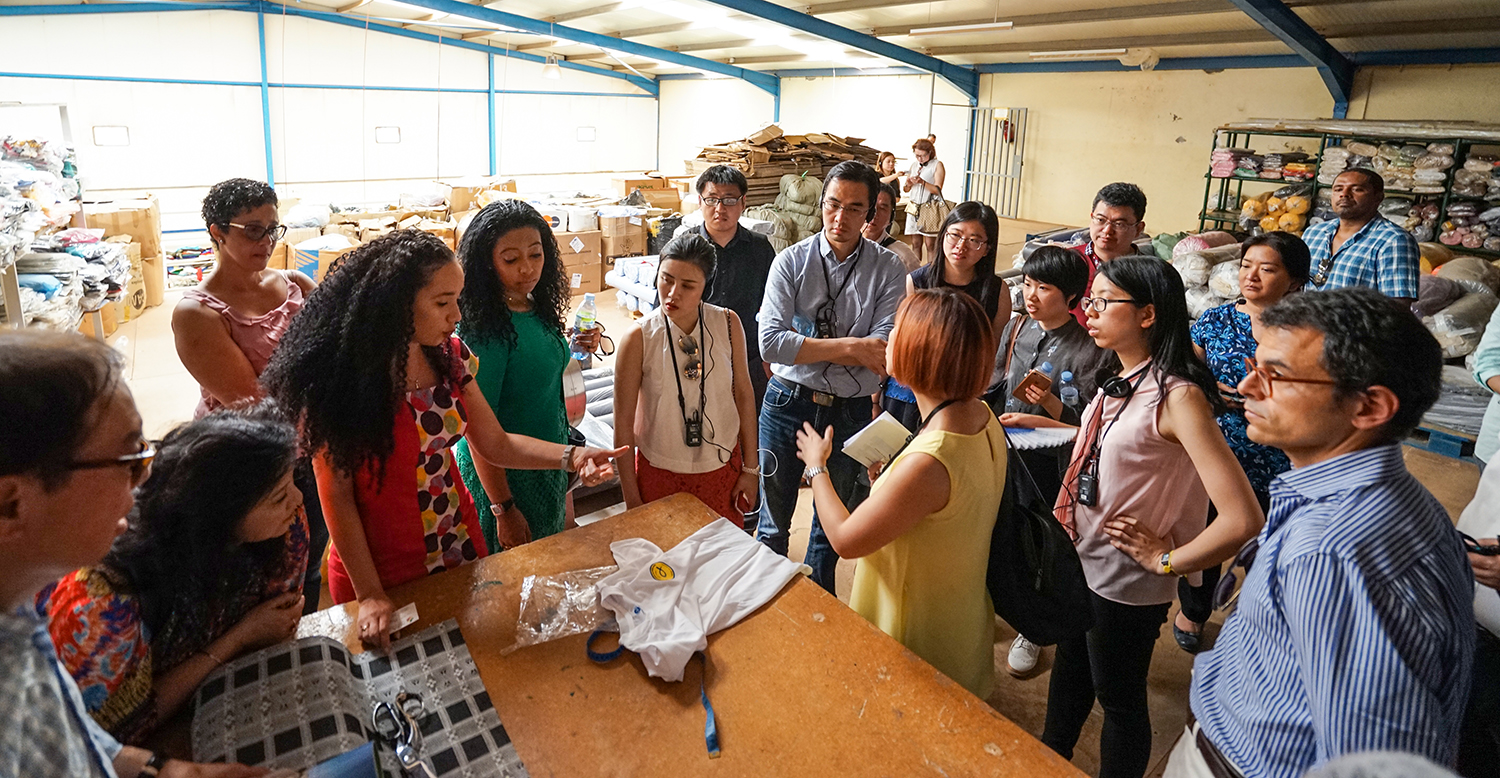
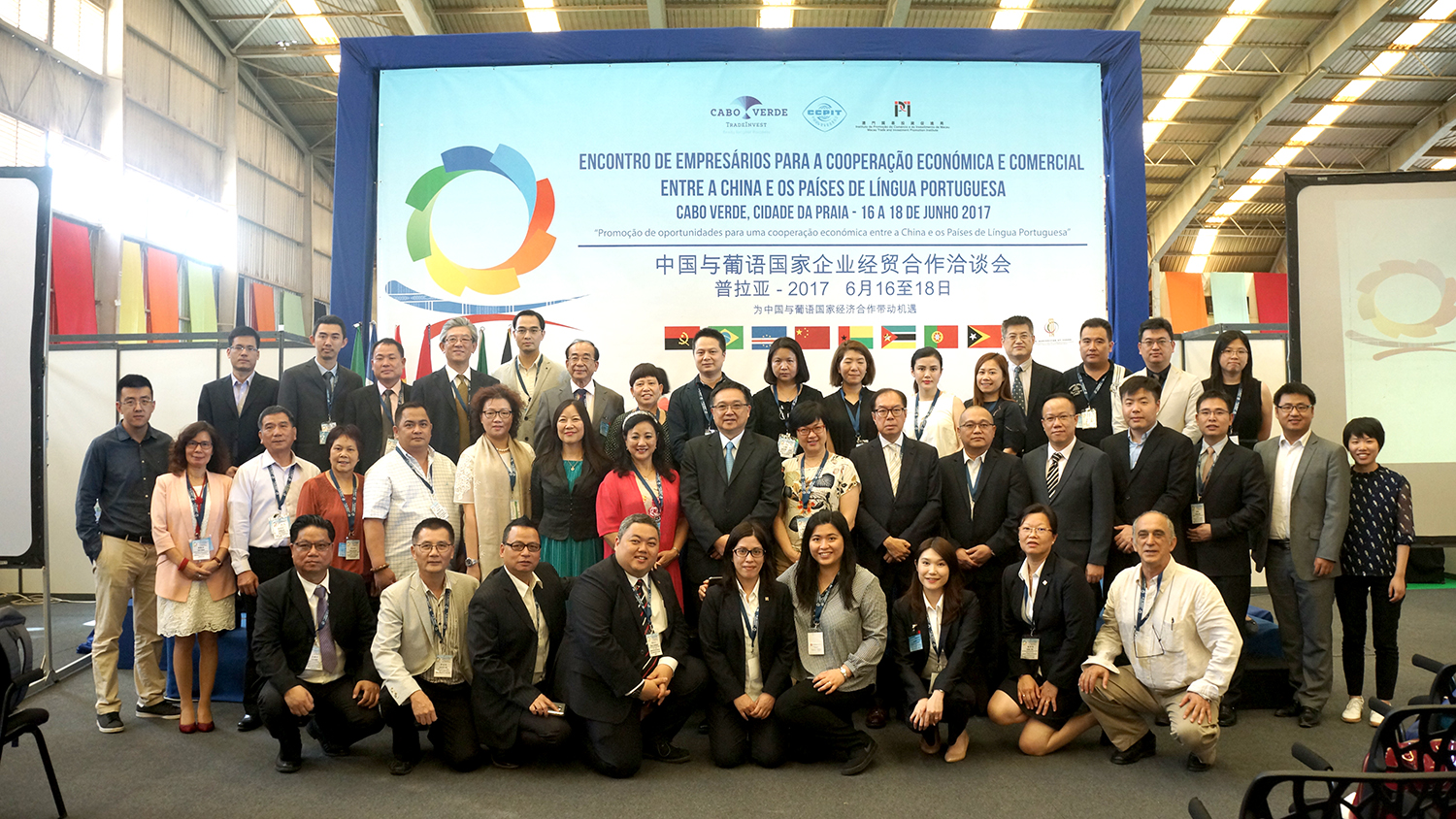
As his business was introduced to the group, questions started to flow: What is the annual income? Who are the main clients? Where are the fabrics imported from? Will they be open to selling a stake in the company?
One of the most experienced members of the delegation jumped in. “You can expand this factory, bring in more modern machinery from China, and export to the whole region!”
Located a stone’s throw from the European Union and well‑placed in the Belt and Road (B&R) initiative launched by the Chinese Central Government in 2013, Cabo Verde has a lot to offer to the various interests represented by the delegation.
For Lima “duty free, quota free” is another major selling point. Under the African Growth and Opportunity Act (AGOA), products manufactured in Cabo Verde are exempt from import tariffs when entering the world’s biggest consumer market, the United States. Cabo Verde is also a part of the large trading bloc created through the Economic Community of West African States (ECOWAS), and enjoys privileged relations with the European Union, all of which make Cabo Verde an ideal partner for China.
China wants to cooperate with African countries in developing production capacity, and the Cabo Verde government is eager to attract investment for its fledgling industrial sector, allowing for diversification away from tourism.
The delegation and its meeting with Confecções were organised by Jackson Chang, president of Macao’s Investment and Trade Promotion Institute (IPIM). The Meeting of Entrepreneurs for Economic and Trade Cooperation Between China and Portuguese‑speaking Countries Praia 2017, was held simultaneously from the 16th -18th of June.


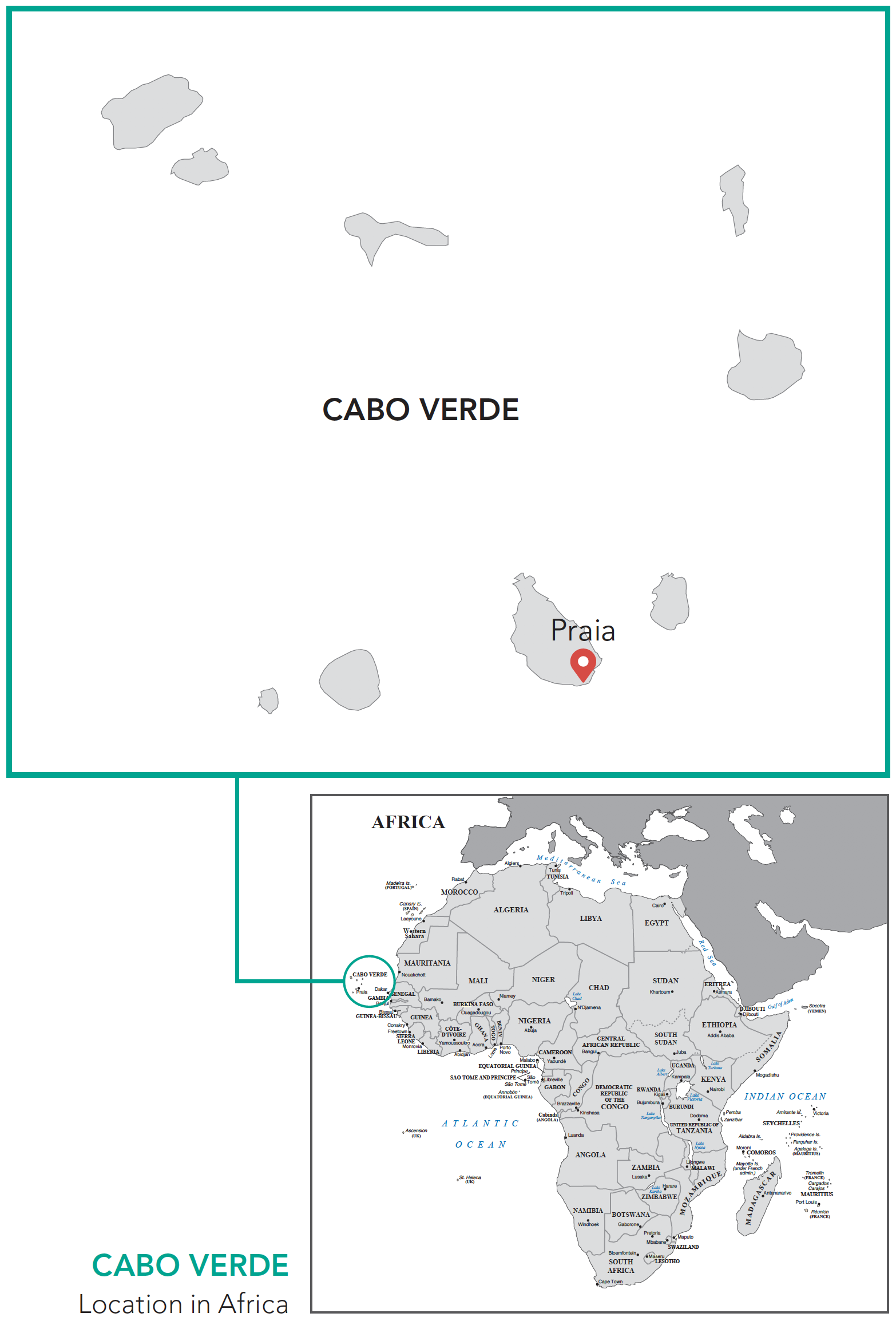
Diversifying toward sustainability
The Praia business forum drew around 400 people, including government and business leaders from all Portuguese‑speaking countries, to a former airplane hangar just outside the capital city. Standing on the sidelines of the event, Chang told Macao Magazine that the Cabo Verde authorities had just expressed their wish to bring in Chinese investment to make greater use of its potential in maritime technologies and resources. IPIM will publicise these opportunities in Macao and all over China.
“We are looking for companies in the interior of China that are interested in visiting Cabo Verde, and perhaps making investments. The archipelago is best‑suited to small and medium‑sized enterprises,” Chang says.
In the area of tourism, one of Macao’s strong points, Chang pointed out that there are already important ties with Cabo Verde – chiefly via investment by David Chow’s Macau Legend Development Ltd. in a hotel, congress centre, and casino in Praia. The delegation visited Chow’s construction yard during their stay in the city.
Cabo Verde already draws around half a million tourists from Portugal, Spain, the United Kingdom, and other countries, to its many beautiful beaches. The potential to expand on that success led Wan Qingdong, executive president of Guotsing Holding Group Co. Ltd., a Beijing‑based investment holding company active in over 30 countries worldwide, to make his first trip to Cabo Verde.
“We are looking at Cabo Verde because of its proximity to Angola, and its potential within the B&R initiative,” he explains. “Right now, we’re considering contacting the government about potential projects that we can carry out. We can set up a team in Angola to do prospection here, start with some works, and then start to explore the tourism sector step‑by‑step.”
Guotsing Holding is currently active in 16 African countries, with significant experience in building water and sanitation infrastructure in Angola. The Portuguese speakers on Wan’s Angolan team are another asset in approaching the Cabo Verde market.
The IPIM delegation also included a representative from China’s consumer electronics and home appliances giant Haier, Macao Magazine learned. The group will consider setting up a local unit to take advantage of favourable tax incentives provided by Cabo Verdean authorities, although market prospection is at its early stages.
Also in attendance at the Praia business forum was Eugénio Inocêncio, an economist and vice‑president of Cabo Verde’s Chamber of Tourism.
“Chinese entrepreneurs now have the opportunity to explore new ways of approaching the country, in two vital investment sectors,” Inocêncio says. “Tourism has already drawn Chinese entrepreneurs to invest in the islands of Boavista and Santiago, but the potential of the financial services sector remains largely untapped. There’s the internal market, but also the foreign market, namely Africa.”
“As a member of ECOWAS with experienced staff in the financial area, Cabo Verde is well‑positioned to serve this fast‑growing market,” he explains. “Chinese investment is very present in Praia, and captivating Chinese manufacturers offers a critical opportunity to develop a more productive and diverse economy.”
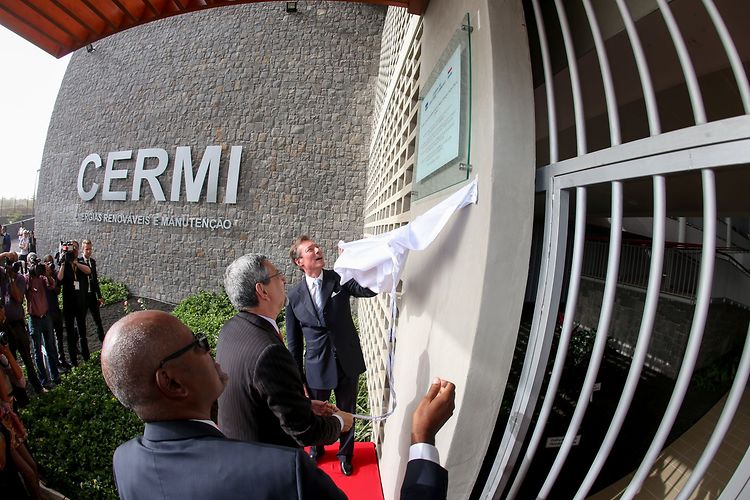
The renewable energy sector is another hot point for the Cabo Verdean authorities. During their visit, Ana Barber Lima led the IPIM delegation on a tour of one of the country’s prides, the Centre for Renewable Energy and Industrial Maintenance (CERMI). Located just outside Praia, the newly‑built centre, equipped with its own next‑generation solar panels, trains technicians and experts from Guinea‑Bissau and other countries in the West Africa region.
The centre is already cooperating with a Chinese electrical equipment provider, but its president, Luís Teixeira, has a bigger vision: investments in solar or wind parks. The existing parks are not enough to meet the country’s energy needs, and expanding renewable capacity would help drive down the high cost of electricity, currently considered a significant obstacle to industrial investment in the country.
Not far from CERMI is the future campus of the University of Cabo Verde. The joint government project is fully‑funded by the Chinese, and will be built by the state‑owned Longxin Group. In April 2017, Chinese telecommunications giant Huawei signed an agreement with the government IT unit, Operational Nucleus of the Information Society (NOSI) aimed at developing and launching end‑to‑end e‑government solutions in areas such as Education, Health and Social Security, and Land Management.
But China’s flagship investment in Cabo Verde is on the northern island of São Vicente, with a project that promises to give the Portuguese‑speaking archipelago a greater foothold in the global “blue economy.”
The special economic zone, created in partnership with China, will focus on services for the shipping and fishing industries, as well as other marine‑based economic activities. Slated for construction in three and a half years, the details are still being outlined, but both governments have been adamant on its potential impact.
Visiting Praia a few weeks prior to the business forum, Chinese Foreign Minister Wang Yi underscored the importance of Cabo Verde’s geography, while his Cabo Verdean counterpart, Luís Filipe Tavares, declared his government’s intention to be part of the B&R initiative.
Cultivating the platform
Among the IPIM delegation to the Praia business forum were members from China’s Ministry of Commerce (MOFCOM), Forum Macao, the China Council for the Promotion of International Trade (CCPIT), represented by vice‑chairman Zhang Wei, and Jin Guangze, the director‑general of the management company of the Fund for Development Cooperation between China and the Portuguese‑speaking Countries. The group also included delegations from the provinces of Fujian, Hunan, and Jiangsu, as well as representatives from Liaoning Province and Dalian Municipality.

Conference participants were eager to know more about the Belt and Road initiative drawn up by the central government of China, as well as the recent establishment of the Cooperation Fund in Macao. Representing the fund, Jin stressed that the financial institution will benefit from its location in the Macao platform.
With a number of businesspeople interested in making applications to the fund for their projects, Jin outlined the three selection criteria: strategic nature, rational investment, and financial viability, which would provide a “reasonable” return for shareholders in 4–5 years.
Of the 10 agreements signed at the end of the meeting, one is already preparing to apply to the fund.
The Chinlumac Corporation, owned by Macau businessman Eduardo Ambrósio, and healthcare consultancy Figueiredo & Tavares Consultoria em Saúde, are seeking funds for a EUR27 million (MOP247.9 million) project to build the country’s first large‑scale private health unit, according to the Cabo Verde partner, Emanuel Figueiredo. The Djéu‑Gamboa Private Hospital, set to open in 2020‑2021, is a benchmark of the trilateral cooperation that has been advocated by the various governments, with Ambrósio hailing from Macao, and his partners from Cabo Verde and Portugal.
Speaking at the forum, deputy director‑general of the Department for Taiwan, Hong Kong and Macau Affairs, MOFCOM, Kang Wen emphasised the role that both the Macao Special Administrative Region and Forum Macao can play as a services platform helping to boost trade and investment in Portuguese‑speaking countries.
According to Kang, the decision to base the Cooperation Fund in Macao should benefit all countries involved. New inroads of cooperation are being created with the Belt and Road, namely in productive capacity.
“The Belt and Road initiative is open and inclusive,” says Kang. “All countries can participate, and we expect to count on the Lusophone countries.”
